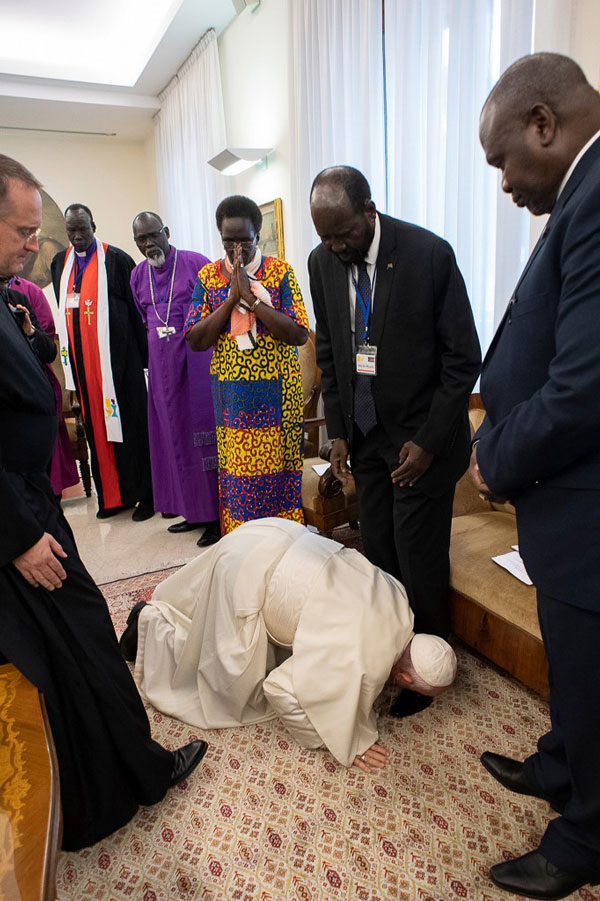
Nairobi, Kenya | AFP | Progress in implementing the peace agreement in South Sudan has been “way short” of expectations, the body responsible for monitoring it said on Friday, a day after Pope Francis urged the warring factions to achieve a lasting peace.
“It is clear that achievements have fallen way short of what was intended for the Pre-Transitional Period,” said Augostino Njoroge, interim chairman of the monitoring and evaluation commission (RJMEC), in an opening statement to a meeting of the body in Juba.
Njoroge said “critical pending tasks” included steps towards forming a national army as well as determining the state boundaries.
The pope on Thursday told President Salva Kiir and rebel leader Riek Machar at the Vatican he hoped “hostilities will finally cease, that the armistice will be respected”.
The arch-rivals last saw each other in October, shortly after the signing of a power-sharing deal, when Machar made a brief return to Juba for the first time since fleeing on foot in a hail of gunfire in July 2016.
The pontiff said he hoped “that political and ethnic divisions will be surmounted, and that there will be a lasting peace for the common good of all those citizens who dream of beginning to build the nation”.
Machar was Kiir’s vice president until a falling out in 2013 which kickstarted a civil war just two years after independence from Sudan.
Battles between those from Machar’s Nuer community and Kiir’s Dinka people were characterised by brutal violence, rape and UN warnings about “ethnic cleansing”.
Njoroge also expressed concern over continued access problems faced by the personnel of another monitoring body — the CTSAMM — adding that “it is disappointing to note that this is a persistent problem”.
“I call on the commanders in Juba to hold their field commanders to account and allow free and unfettered access,” he said.
Several ceasefire agreements and peace pacts have failed to end the fighting, which has led to the death of an estimated 380,000 people, uprooted a third of the population, forced nearly two-and-a-half million into exile and triggered bouts of deadly famine.
 The Independent Uganda: You get the Truth we Pay the Price
The Independent Uganda: You get the Truth we Pay the Price



